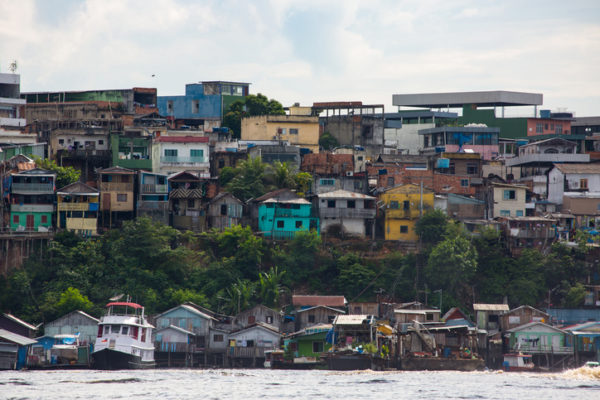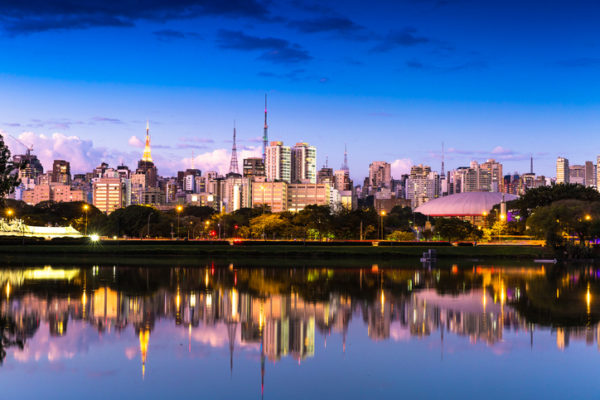Understanding the complex challenges of Brazil’s cities
This piece by Andreza de Souza Santos is an introduction to the new edition of UT Connect, looking at different elements of the Brazil-UK research collaboration on cities.

Children living in small municipalities in the state of Amazonas, Brazil, face a transportation challenge: to go to school during the dry season they have to walk several kilometres, while most of their vacation period takes place during the rainy season, when they would be able to go to school by boat. This case shows that the problem of school drop-outs or non-attendance is also a problem of transportation. But looking at the whole picture, long periods of drought also lead to food shortages and limited access to health supplies. In such communities, changing the school schedule so that vacation happens during the dry season would solve only one part of the problem, that of commuting to school, but would not remedy food and health related issues.
The challenge faced in the north region of Brazil thus shows a common feature in policy-making: when discussing education, one is also looking at transportation, the environment, health, food production and energy supply. In other words, the provision of well-being needs to be tackled from a variety of perspectives and methods.
The Urban Transformations portfolio has acted as an incubator for such variety of perspectives and methods. We have connected researchers who have tackled food insecurity, gender-based violence, mobility inequality, and social and spatial segregation in Brazil by focusing on different age groups and with methods ranging from ethnography to performing arts. What this research portfolio shows is that in a country as unequal as Brazil, when addressing urban mobility – for example, by promoting cycling and walking – one needs to consider the willingness of women in using such transportation, the age groups who may benefit from this access, and whether access to different areas will lead to the amalgamation of different classes.
Understanding and fully addressing physical and social barriers in the construction of friendlier, healthier and safer cities is thus the puzzle the Urban Transformation portfolio is putting together. Some questions have arisen in this exercise in the Brazilian context: when are such physical and social barriers recognised? Do social and spatial inequalities affect women in particular? What role can children play in helping to connect the nexus between food, energy and water supply? And how can the lessons learned from different case-studies in Brazil, from female residents of Rio’s favelas to inhabitants of remote villages in the north, also speak to the experiences of those living on urban peripheries elsewhere?

To communicate research and generate knowledge without necessarily imposing values is an exercise that takes into account well-established partnerships between academic and non-academic groups, constant reflection on researchers’ positions and the need to translate research not only into different languages but also into different resources – blogs, videos, theatre, papers, and books – so that the results are inclusive and discussed beyond academic circles. This is something the Urban Transformations portfolio has achieved through a range of platforms, including curating a widely read BBC series in Portuguese, to communicate research in a jargon-free way. In addition, we have organized workshops, visited projects, commissioned blogs and are now in the process of editing a book series, all with the aim of supporting knowledge exchange and communication between different stakeholders.
While research projects were taking place in Brazil, the country changed in a variety of ways: there was an impeachment charge in 2016, civil rights gave way to an austerity agenda and military forces took control of public security in Rio de Janeiro. The sheer velocity of change in Brazil has presented an additional challenge for researchers who, even without these upheavals, were already navigating the complex landscape of Brazil’s cities. With so many challenges, Brazil is and will continue to be a site of urban innovation and enquiry, a country that both poses questions and offers solutions for urban scholars around the world.